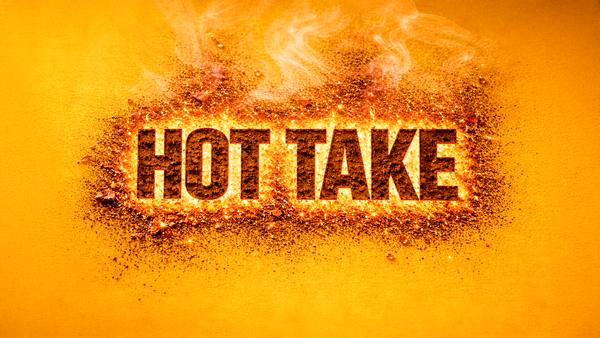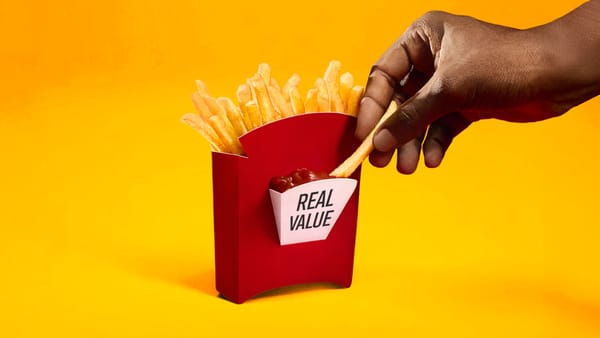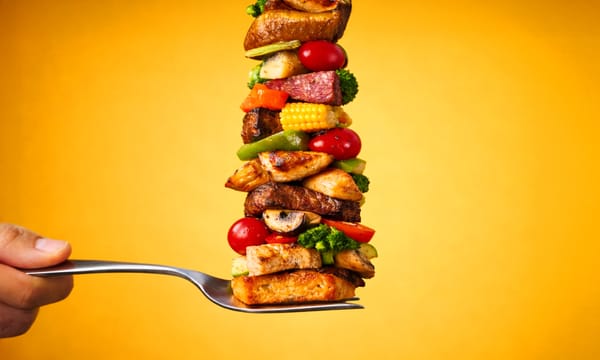UNSTUCK 030: What Sustainable Food Needs To Learn From Alcohol-Free Beer’s Rise
Even deeply entrenched cultural products can be reimagined with the right insight and approach to branding
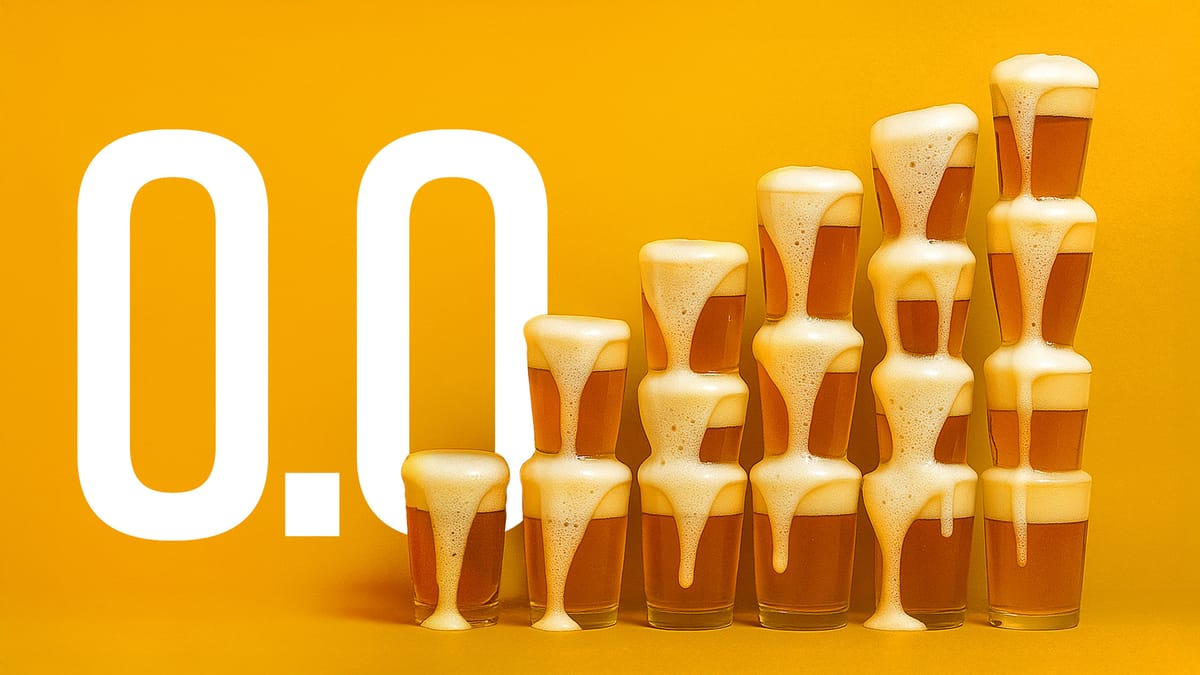
There was a time, not too long ago, when alcohol-free beer was something you ordered only when pregnant, punished, or in possession of a court order. Fast forward to today, and you’ll find stylish 0.0% lagers occupying premium shelf space, backed by big-budget campaigns and growing at 9% while overall beer sales are in decline. What changed and what can you learn from it?
The cultural shift from restriction to aspiration
To understand the rise of alcohol-free beer, we have to start with the broader backdrop: modern wellness is no longer a niche. “Health” has gone from something your gym teacher lectured you about to a $6 trillion global industry powered by personal optimization, self-tracking, and the not-so-subtle pressure to live forever, or at least look like you could.
In that context, not drinking has flipped from being a social liability to a mark of discipline. Gen Z, in particular, is drinking less but spending more—on functional beverages, clean-label sodas, and yes, better-tasting, beautifully-branded non-alcoholic beers. For these consumers, it’s not abstention, it’s self-mastery.
Sustainable foods should be riding the same trend wave. But instead of offering empowerment, many brands in the category still feel like a compromise – taste, experience, or social credibility sacrificed at the altar of climate virtue.
Challenger brands crafting cool without the alcohol
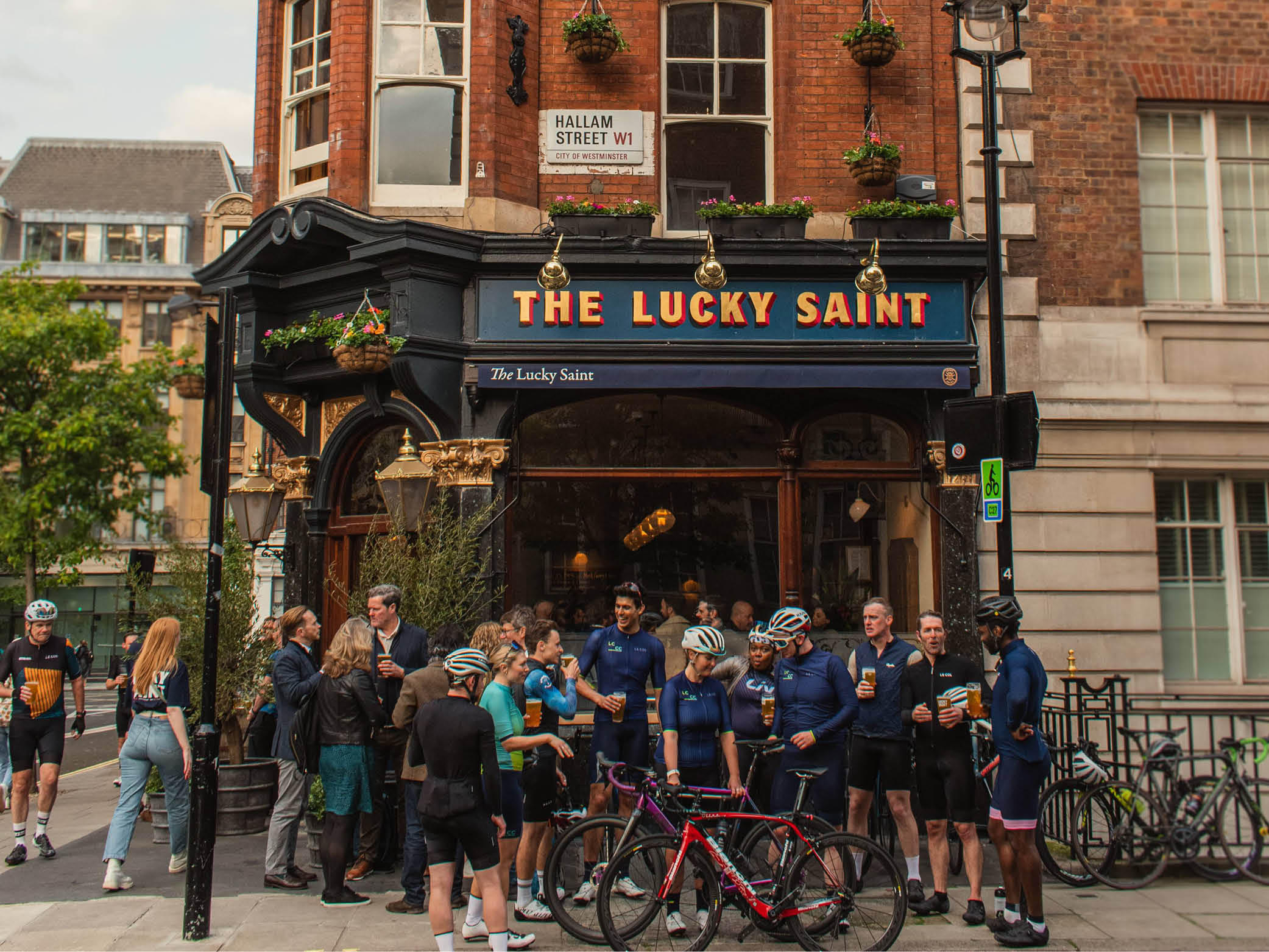
However significant the macro trend, category shifts need brands to make the new reality a desirable one. Tesla in electric cars, Method in eco-friendly cleaning, Poppi in functional sodas. A brand's path to success starts with finding a powerful insight about consumers in the category to build their proposition around.
For alcohol free, this was recognising that what you drink says something about you as a person. Lucky Saint in the UK latched onto the finding that ordering an alcohol-free beer got people wondering what was up with you. Asking for a Lucky Saint, and packaging the beer in a culturally cool way (demoting alcohol-free to the small print), meant you could hold onto your standing in the bar.
Similarly, Athletic Brewing Co. in the US has built its brand to be one you’d be proud to be seen with, leveraging the codes of craft beer and sports. It didn’t market to former drinkers. It targeted high performers – athletes, outdoorsy types and the wellness-obsessed. It created a new beer culture where you could crush both a trail run and a six-pack, with alcohol-free messaging again taking a back seat.
Too many sustainable food brands still approach the market as supplicants: “Please choose us, we’re better for you and the planet!” Instead, they should be casting themselves as the next evolution of food culture: smarter, tastier, and cooler.
Big beer follows fast, and at scale
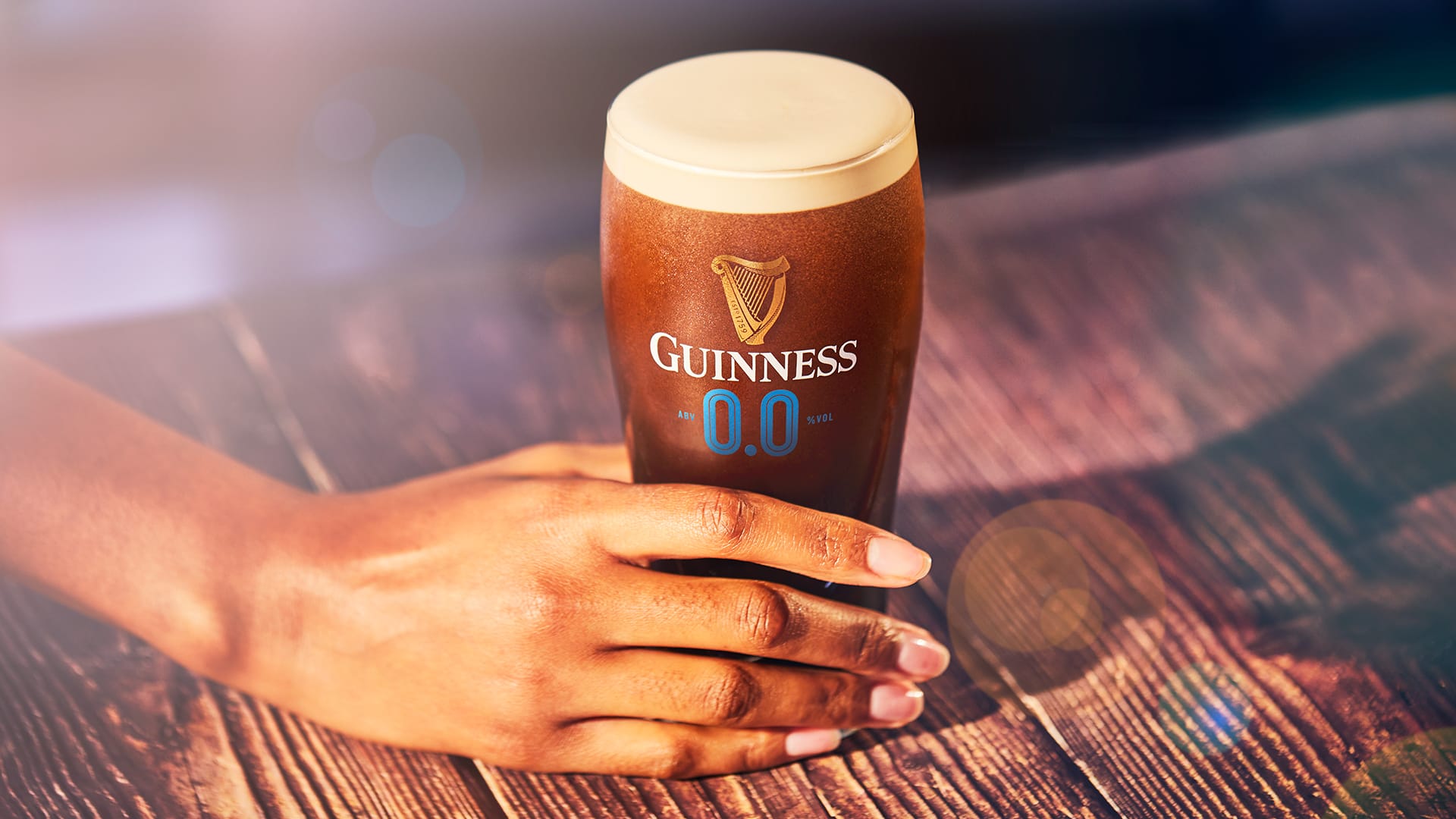
Once the upstarts proved there was real money in alcohol-free, the majors put some serious firepower behind their own efforts. Heineken 0.0 got an almighty brand push with the kind of global polish reserved for new flagship products. Budweiser Zero brought NBA star power. Guinness 0.0 made sure its signature nitro pour stayed intact, proving even sacred brewing rituals could be reimagined.
Here, traditional beer players did something food majors often fail to do: they took the challenge seriously. They didn’t slap a green label on an experimental SKU and feature it in the CSR report. They reformulated, rebranded, and reinvested. Crucially, they created mainline products, not token offerings hidden in the “special diets” aisle. The consumer message couldn’t be more simple – you’re getting the full beer experience, just without the alcohol when you don’t want it.
Sustainable food needs to make a better case to the Nestlés, Unilevers and Arlas of this world and stop the half-baked product lines that make for easy targets by critics, disappointed retailers and skeptical consumers alike.
Don’t sell sacrifice, sell superiority
Across both the challengers and big beer brands the learning is clear. Double down on why a consumer buys the category – the experience of drinking beer and the social identity that comes with it. Remove the component they want less of - the alcohol.
They’re not selling beer-free beer. They’re selling alcohol-free beer. This is the key nuance the sustainable foods industry needs to understand.
The problem with meat-free meat (or cocoa bean-free cocoa, or dairy-free dairy) is that in the same way consumers don’t have a problem with beer, they don’t have a problem with meat (or cocoa beans, or dairy).
It’s easy to bemoan that consumers were asking for less alcohol which is not the same as meat, but the macro trend of health and wellness is as true in food as it is in drinks. In fact, for food you can throw nutrition in there as well.
People do want to eat more healthily. They do want to up their protein. They do have a problem with cholesterol, saturated fat, or feeling bloated after too much dairy. And they know they need to eat more plants.
The solution is building desirable propositions, backed up by claims that answer consumer needs. Oat milk celebrates the oat, the benefits that come with it, the new experiences you can have with it. Fable Foods showed that “Shiitake Carnitas” outperform “Plant-based Beef” by an order of magnitude. Vow invites you to experience tasting something for the first time with their Japanese Quail.
What the rise of alcohol-free beer proves to us is that even deeply entrenched cultural products can be reimagined if the branding is bold, the product is good, and the marketing understands the moment.



